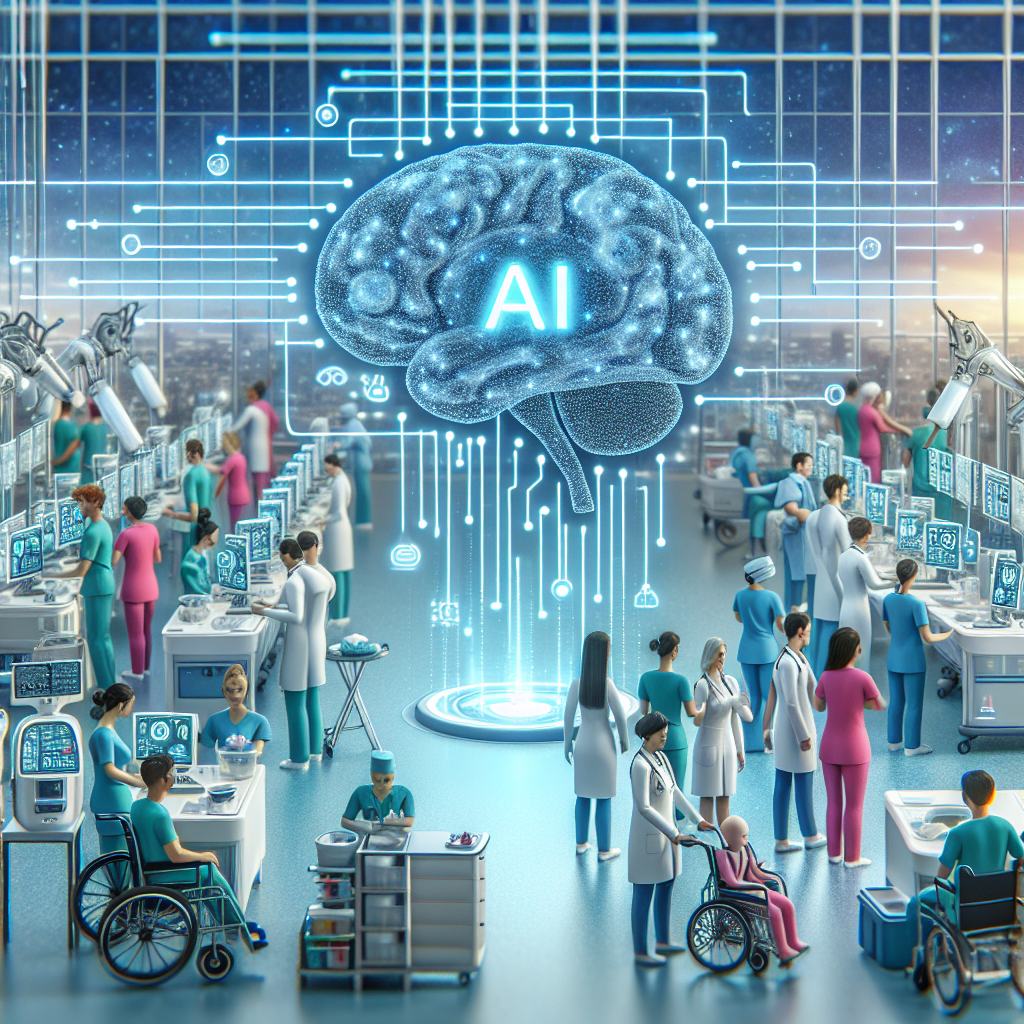Artificial General Intelligence (AGI) is a term that refers to a type of artificial intelligence that can understand, learn, and apply knowledge in a way that is similar to human intelligence. While AGI is still in the early stages of development, it has the potential to revolutionize many industries, including healthcare and medicine.
In recent years, there has been a growing interest in using AGI to improve healthcare and medicine. From diagnosing diseases to developing personalized treatment plans, AGI has the potential to transform the way we approach healthcare. In this article, we will explore the possibilities of AGI in healthcare and medicine and discuss some of the challenges and opportunities that come with it.
AGI in Diagnosing Diseases
One of the most promising applications of AGI in healthcare is in the field of diagnosing diseases. AGI has the potential to analyze vast amounts of medical data, including patient records, lab results, and imaging scans, to help healthcare providers make more accurate and timely diagnoses. By combining this data with advanced algorithms, AGI can identify patterns and trends that may not be obvious to human doctors, leading to earlier detection and treatment of diseases.
For example, researchers at Stanford University have developed an AGI system called CheXNet, which can analyze chest X-rays to diagnose pneumonia with a high degree of accuracy. In a study published in the journal Radiology, the researchers found that CheXNet outperformed human radiologists in diagnosing pneumonia, demonstrating the potential of AGI to improve diagnostic accuracy in healthcare.
AGI in Personalized Medicine
Another exciting application of AGI in healthcare is in the field of personalized medicine. Personalized medicine aims to tailor medical treatments to individual patients based on their genetic makeup, lifestyle, and other factors. AGI has the potential to analyze large amounts of patient data to identify patterns and correlations that can help healthcare providers develop personalized treatment plans that are more effective and efficient.
For example, researchers at Mount Sinai Health System in New York have developed an AGI system called DeepPatient, which can analyze electronic health records to predict which patients are at risk of developing certain diseases. By analyzing factors such as age, gender, and medical history, DeepPatient can help healthcare providers identify patients who may benefit from early intervention or preventive measures, leading to better health outcomes.
Challenges and Opportunities
While the potential benefits of AGI in healthcare and medicine are clear, there are also several challenges that need to be addressed. One of the biggest challenges is the need for large amounts of high-quality data to train AGI systems. In healthcare, data privacy and security are major concerns, and there are strict regulations in place to protect patient information. Developing AGI systems that can analyze and learn from data while ensuring patient privacy and compliance with regulations is a complex and challenging task.
Another challenge is the lack of transparency and interpretability of AGI systems. Unlike traditional machine learning algorithms, which can provide explanations for their decisions, AGI systems are often seen as black boxes that make decisions based on complex algorithms that are difficult to understand. This lack of transparency can make it difficult for healthcare providers to trust and rely on AGI systems for critical medical decisions.
Despite these challenges, the opportunities for AGI in healthcare and medicine are vast. By leveraging the power of AGI to analyze large amounts of medical data, healthcare providers can improve diagnostic accuracy, develop personalized treatment plans, and ultimately improve patient outcomes. As the field of AGI continues to evolve, it is likely that we will see even more innovative applications of AGI in healthcare in the years to come.
FAQs
Q: How is AGI different from other types of artificial intelligence?
A: AGI is a type of artificial intelligence that can understand, learn, and apply knowledge in a way that is similar to human intelligence. Unlike other types of artificial intelligence, such as narrow AI or machine learning, AGI has the ability to perform a wide range of tasks and adapt to new situations without being explicitly programmed to do so.
Q: How can AGI improve healthcare and medicine?
A: AGI has the potential to revolutionize healthcare and medicine by analyzing vast amounts of medical data to improve diagnostic accuracy, develop personalized treatment plans, and identify trends and patterns that may not be obvious to human doctors. By leveraging the power of AGI, healthcare providers can improve patient outcomes and reduce healthcare costs.
Q: What are some of the challenges of using AGI in healthcare?
A: One of the biggest challenges of using AGI in healthcare is the need for large amounts of high-quality data to train AGI systems. Data privacy and security are also major concerns, and there are strict regulations in place to protect patient information. Additionally, the lack of transparency and interpretability of AGI systems can make it difficult for healthcare providers to trust and rely on AGI systems for critical medical decisions.
Q: What are some examples of AGI systems being used in healthcare?
A: Some examples of AGI systems being used in healthcare include CheXNet, a system developed by researchers at Stanford University that can analyze chest X-rays to diagnose pneumonia, and DeepPatient, a system developed by researchers at Mount Sinai Health System that can analyze electronic health records to predict which patients are at risk of developing certain diseases. These systems demonstrate the potential of AGI to improve diagnostic accuracy and personalized medicine in healthcare.

